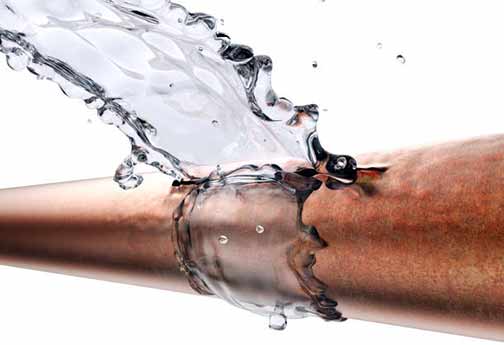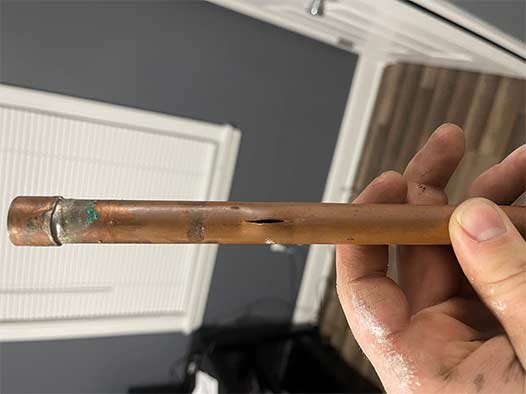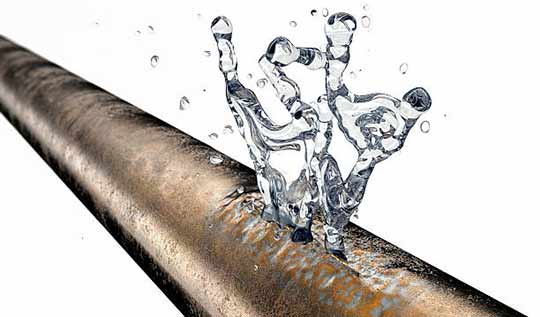
A burst pipe is one of the most destructive emergencies in your home, says H&M Management. A burst pipe can flood your home within minutes, causing tens of thousands of dollars worth of damage. If the problem happens while you are asleep or away from your home, the effect can be disastrous.
But if it happens during the daytime while at home, you have a better chance of saving your property. Speedy and informed action can help you minimize the damage a burst pipe does to your home. That is why it is essential to know what to do when a plumbing pipe bursts in your home.
The best time to learn this information is before the problem happens. Hopefully, you are reading this to know what to do if you ever have a burst pipe in your home. But if you are currently dealing with this emergency, the information in this post will still help you.
What to do if you find a burst pipe in your home
Shut off the water supply
Before anything else, you want to stop the burst pipe from discharging more water into your home. If the broken pipe has a dedicated shut-off valve, shut the water supply by closing this valve. If it does not, your best bet to stop the water is by closing the main water shut-off valve for your house. That can usually be found in the basement, below the stairs, under a bathroom sink, in the garage or outside.
Turn off the power supply
Water and electricity do not mix very well. Even if you think there are no nearby power outlets, electrical wires or appliances, it still makes sense to turn off the electricity. Do not take a chance; turn off the power supply at the electrical panel by shutting the circuit breaker for the affected area or the entire home.
Protect your valuable items
Remove items in the path of the moving water if they can be damaged by water. Move items that have not been touched by water to a dry area. Even if an item is wet, do not leave it in the water. That will only make the damage worse. If possible, move it to a dry place.
Remove the standing water
Taking immediate action to remove standing water from your home can minimize the damage to your flooring, drywall, ceiling and other structures. You can do this manually by scooping the water with a dustpan and dumping it in a bucket. A quicker way to do this is with pumps or vacuums designed for water removal
Assess the level of damage
Removing the standing water inside your home will make it easier to assess the damage to your property. Once you have a good idea of what has been damaged, it is easier to design an effective clean-up plan. You may want to deploy fans and dehumidifiers to dry out the affected areas.
Document the damage
After turning off the water and power supplies and doing all the above steps, you should start documenting the damage to your home. Take photos and videos of the entire property. You may want to record the exact positions of damaged items before removing them. It is a good idea to add a detailed description as you video the scenes.
Contact an emergency plumber
An emergency plumber is the proper professional to call when you have a burst pipe in your home. Emergency plumbers set up operations to deal quickly and effectively with these situations. Unlike regular plumbers, a professional emergency plumber will get to your home in record time and with the right equipment.
File your insurance claim
While doing all these, you should have contacted your insurance company to inform them of the problem. Remember that you do not have to provide all the details immediately. Even if the company representative asks you questions, you are not obligated to provide answers. Be aware that the answers you provide will be binding on you.
Contact a water damage restoration company
Your plumber will only fix the damage to your plumbing, not the damage to your walls, flooring and belongings. To fix that, you need a water damage restoration service. Your insurer may have their preferred water damage restoration company. If not, your plumber may be able to recommend one.
Finally, water pipes don’t burst without a reason. Usually, before a water pipe ruptures, there are warning signs of the impending problem. Proper plumbing maintenance with comprehensive and regular inspections can help you detect and avoid major plumbing issues.
These inspections should be done by a professional plumber, and all identified problems should be fixed immediately. In addition to having your plumbing inspected regularly, you also want to know the steps for winterizing your plumbing to prevent burst pipes.

